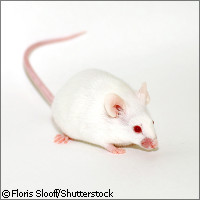Research throws new light on male infertility
Researchers in Belgium and Switzerland have discovered a link between Rhesus factors in the blood and levels of acidity in the urine which could have important implications for male fertility levels. The study, which was funded under the EU's Sixth and Seventh Framework Programmes (FP6 and FP7), is published in the journal Nature. The Rhesus proteins are well known for their importance in blood transfusions, but a study led by Dr Anna Maria Marini of Fonds de la Recherche Scientifique in Belgium has found that the Rhesus protein Rhcg also has a vital role to play. Ammonium is a major source of nitrogen for plants and animals, but it is also a source of toxicity and is involved in regulating blood acidity levels (pH) in humans. The liver and kidneys are involved in ammonium detoxification and excretion and their transport and metabolism are critical for pH regulation. For years it has been believed that this was achieved by a process of diffusion, but instead the research team uncovered a crucial link with the Rhcg protein. The researchers investigated mice born deprived of their Rhcg gene and expected to see defects in ammonium transport and excretion. The results showed that the mice's urine contained very low levels of ammonium, especially when they were fed acidic foods. This caused a major loss of weight and an altered blood pH level, which led to a decreased ability to cope with acidity in the kidneys. Renal ammonium production and excretion is necessary for acid excretion. But this is largely dependent on the Rhesus factor Rhcg. Mice that lack Rhcg have abnormal urinary acidification. The researchers concluded that Rhcg helps the kidneys to process ammonium. This discovery has led to a revision of the previous belief that the ammonium processing is carried out by diffusion. But the experiment also led to another interesting result. The male mice that were deprived of their Rhcg gene generated smaller litters, leading to the conclusion that the Rhcg gene is expressed in the male genital tract and that high acidity levels in the male mice could have helped lead to their lowered fertility. The female mice deprived of their Rhcg gene showed normal fertility levels. 'With the identification of Rhcg as the ammonium channel in the collecting duct,' the study concluded, 'researchers can now address questions such as whether and how this channel may be regulated, and what its involvement is in disease processes associated with impaired regulation of blood pH.' This could have huge implications for the question of fertility in human males. The quality of male sperm has shown a decline in recent decades, particularly in Western males, and this is causing concern over the possible factors involved. A high level of acidity caused by mutations of the Rhcg gene could possibly be the cause. The study concluded that 'by highlighting the role of Rhcg in ammonium disposal and urinary acidification, the study brings new insights into the regulation of acid-base homeostasis and the role of the kidneys on the pathophysiology of disease states such as DRTA and male infertility.' The findings came out of the FP6 project EUREGENE ('European Renal Genome Project', funded approximately EUR 10 million) and the FP7 project EUNEFRON ('European Network for the Study of Orphan Nephropathies', funded approximately EUR 3 million).
Countries
Belgium, Switzerland



